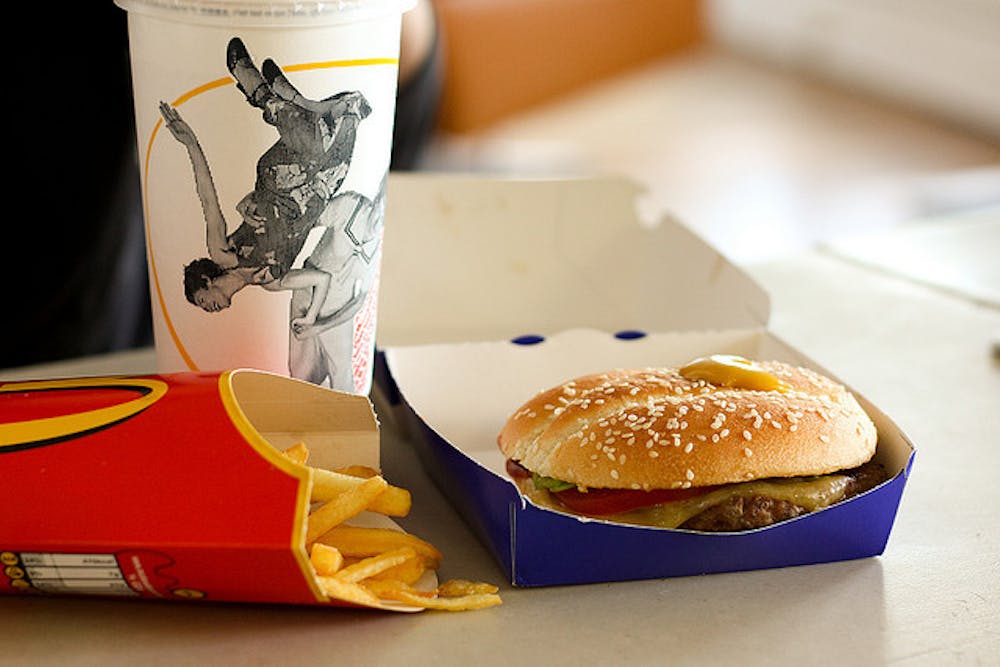The sticky note on the plate of freshly baked chocolate-chip cookies says, “Help yourself!”
Natalie just ate dinner, but her sweet tooth has begun its nightly kick. She lifts the foil from the plate and inhales the smell of Ghirardelli chocolate. You’ve been good all day she says. No one else is here. She breaks off a small piece of the cookie and savors the buttery bite. Pulling out a glass of milk, she dunks the rest of it in.
Dunk after dunk, Natalie begins to inhale the cookies:
This is the third time this week I’m eating cookies
Dunk
I am gaining so much weight
Dunk
Ugh, I can’t believe I bombed that Chemistry test
Dunk
I promise I’ll workout tomorrow.
Dunk
When the plate is empty, her feet guide her to the pantry, where she opens a jar of peanut butter and package of Oreos. Her mind seemingly shut off, she then turns to yogurt from the fridge. Next, cool whip from the freezer, then back to the pantry. The cycle repeats until she feels like she just ate a five-course dinner. Sinking to the ground amid empty wrappers and licked spoons, shame overwhelms her and guilt spills tears across her cheeks.
Although Natalie is a fictional character, her lifestyle is prevalent among 3 to 5 percent of women in the United States and about 2 percent of men, according to National Association of Anorexia Nervosa and Associated Disorders (ANAD). This disorder, known as Binge Eating Disorder (BED), is difficult to distinguish from overeating, hiding the fact that many people fall prey to the disorder.
Psychologists are hoping to change this.
Prior to this year, the Diagnostic and Statistical Manual of Mental Disorders (DSM) included only Anorexia, Bulimia and Eating Disorders Not otherwise Specified (EDNOS) as the only three categories of eating disorders. However, BED was added as a fourth category in the 2013 DSM-5 criteria. Psychologists seek to minimize such “catch-all diagnoses” that often appear in the EDNOS category.
Rather than just overeating, but feel that you often lose control over your eating, eat alone, or feel disgusted with yourself after eating, you may be struggling with BED.
Click here for specific BED criteria, and seek help from a nutritionist, doctor or counselor.






